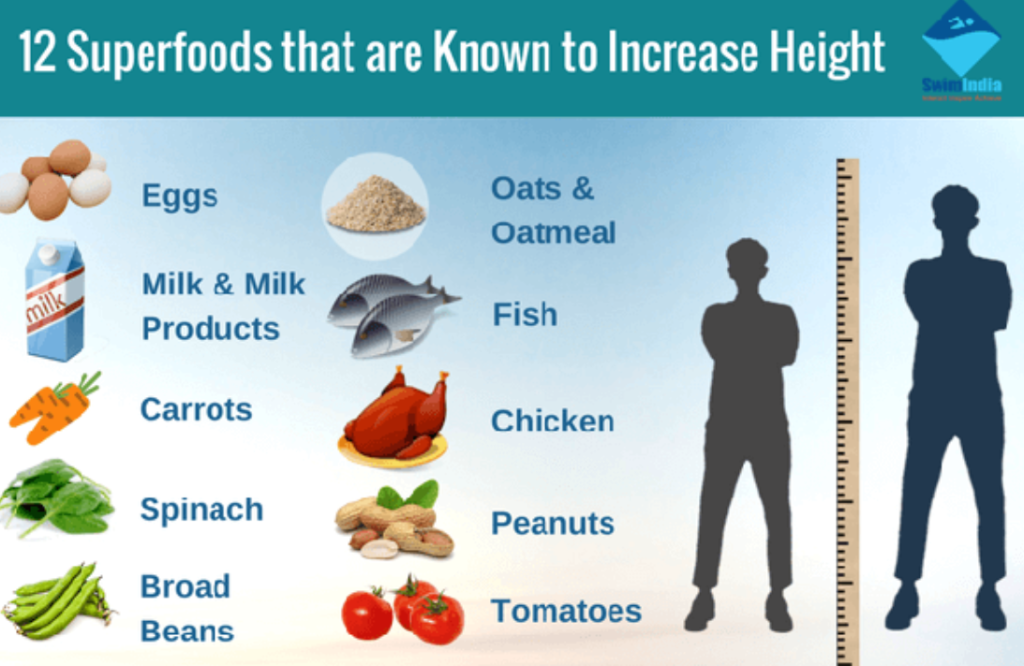Protein intake does play a role in overall growth and development, but its impact on height is limited and influenced by various factors. While protein is essential for tissue repair, including muscle and bone growth, it’s important to understand that height is primarily determined by genetics and certain environmental factors.
A good protein intake is an important part of a healthy diet for people of all ages. However, there is no evidence that increasing protein intake can increase height.
Height is determined by a number of factors, including genetics, nutrition, and environment. Genetics is the most important factor, accounting for about 80% of a person’s height. Nutrition plays a role, but it is less important than genetics.

During childhood and adolescence, a balanced diet that includes adequate protein is important for supporting healthy growth and development. Protein provides the building blocks necessary for the body to develop tissues, including bones, muscles, and organs. However, simply increasing protein intake beyond what is necessary for normal growth will not significantly impact height.
Factors that primarily influence height include:
- Genetics: Genetic factors have the most significant impact on an individual’s height. Height tends to follow a familial pattern, meaning that children tend to have heights similar to those of their parents.
- Nutrition: Proper nutrition is important during childhood and adolescence to reach one’s potential height. A well-balanced diet that includes essential nutrients like protein, vitamins, and minerals is crucial for overall health and growth.
- Hormones: Hormones play a key role in growth, particularly growth hormone and sex hormones. Growth hormone, produced by the pituitary gland, stimulates the growth of bones and other tissues.
- Sleep: Adequate sleep is important for growth and development, especially during adolescence when growth spurts typically occur.
- Physical Activity: Engaging in regular physical activity supports overall health and may have a positive impact on bone health and posture.
Adequate protein intake is important for growth and development, but it is not clear how much protein is needed to maximize height. The recommended daily intake of protein for adults is 0.8 grams per kilogram of body weight. However, some studies have suggested that higher protein intakes may be beneficial for growth.
A study published in the journal Nutrients in 2022 found that children who consumed more protein had a higher growth velocity, or rate of growth, than children who consumed less protein. However, the study did not find that protein intake was associated with final height.
While a good protein intake is important for overall health and growth, it’s just one of many factors that contribute to height. Excessive protein intake beyond the body’s needs is not likely to result in an increase in height. It’s important to maintain a balanced diet, get enough sleep, engage in regular physical activity, and focus on overall well-being rather than trying to manipulate protein intake solely for the purpose of increasing height. If you have concerns about growth or nutrition, it’s recommended to consult a healthcare professional or a registered dietitian for personalized advice.

Another study, published in the journal Pediatrics in 2017, found that children who consumed more protein had a higher bone mineral density than children who consumed less protein. Bone mineral density is important for bone health and may contribute to height.
However, both of these studies were observational studies, which means that they cannot prove that protein intake caused the observed differences in growth or bone mineral density. More research is needed to determine the role of protein intake in height and growth.
If you are concerned about your height, it is important to talk to your doctor. Your doctor can assess your growth and development and recommend a healthy diet and lifestyle that may be beneficial for you.
